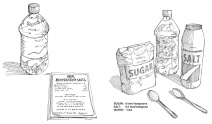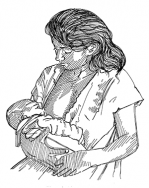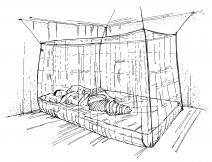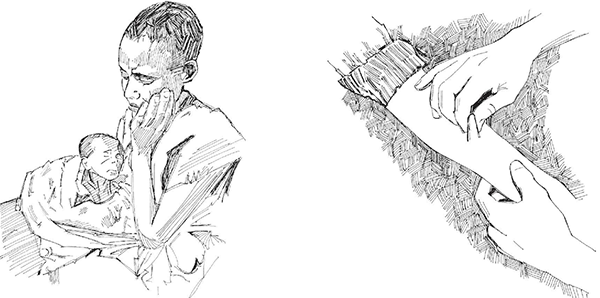07. Assessment of dehydration
Overview
People with diarrhoea, especially children, can lose a lot of fluid from their bodies and suffer dehydration.
Dehydration can cause very severe illness and sometimes death, especially in association with acute watery diarrhoea and cholera.
** Caution is required towards people who show signs of malnutrition. A child or adult that has red or yellow mid upper arm circumference (MUAC) measure should be referred immediately to a health facility for treatment or prevention of dehydration. ** (See Action tools Measuring acute malnutrition in emergencies and Measuring mid upper arm circumference for further information on MUAC and on malnutrition)
What to do and how to do it
First, detect whether the person may be a potential cholera case:
Second, assess the degree of dehydration and take the following actions:
*Plan A and Plan B are detailed in the Action Tool Giving Oral Rehydration Solutions (ORS).



